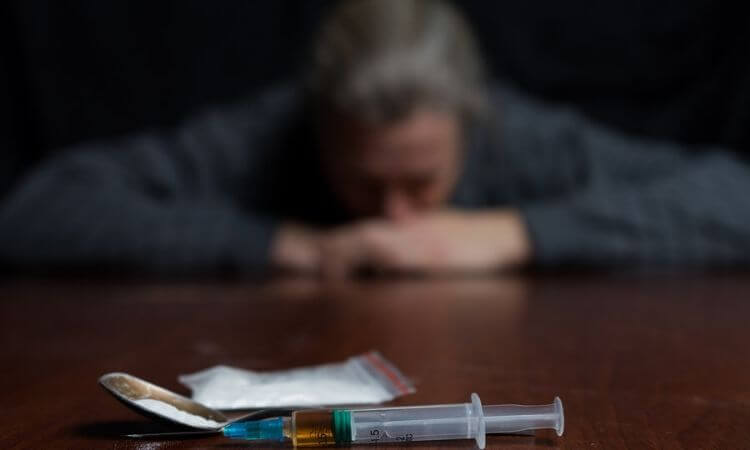
Maintaining sobriety is a life-long endeavor that comes with a myriad of challenges. For some, there is a significant risk of relapse looming, as well as a return to old destructive habits and behaviors. But relapse does not have to lead to the end of the road—learning from a setback can help you regain the tools you need to avoid reacting in the same ways in the future.
The Three Stages Of Relapse
For many in recovery, relapse is part of the overall process. In fact, according to the National Institute on Drug Abuse (NIDA), about half of all addicts relapse at least once after becoming sober for a prolonged period.
When a person relapses, this doesn’t necessarily mean that recovery has been a total failure. Many people consider relapse to be a learning experience and become better able to recognize triggers and avoid pre-relapse the next time around. Although relapse is frequently accidental and impulsive, there are distinct warning signs that can foretell when a relapse is imminent.
Relapse is believed to consist of three separate stages: emotional, mental, and physical.
Stage 1: Emotional Relapse
During an emotional relapse, the person is not actively thinking about returning to drug or alcohol use. Their emotions and behaviors, however, may be setting them up to wander down the wrong path.
Emotional relapse can be recognized by symptoms such as depression, anxiety, anger, defensiveness, mood swings, social isolation, failure to attend group support meetings or therapy/counseling sessions, and poor eating and sleeping habits. In other words, the person is not taking care of themselves properly, and this neglect of self-care and coping mechanisms, if left unaddressed, increases the likelihood that a relapse will occur.
Stage 2: Mental Relapse

During a mental relapse, the brain is teetering between the possibility of using versus not using substances. Part of the person in recovery wants to use, while the other part doesn’t want to waiver in their commitment to sobriety. Signs of mental relapse often include thinking about people and places associated with a past life, romanticizing prior drug or alcohol use, being deceptive, socializing with people who use, considering the possibility of relapse, and even preparing for one.
Prevention of Mental Relapse
When the process of mental relapse starts, there are some methods that an addict can take advantage of to regain control of their thoughts and feelings and make the decision to actively avoid relapse.
1. Call someone—a sponsor, friend, or anyone who understands and will listen without judgment, yet is concerned with your sobriety and well-being and will not encourage activities that lead to a relapse.
2. Wait 30 minutes. Before acting on an urge to use, try waiting a few minutes and taking time to reevaluate this urges and the reasoning behind it. Cravings usually don’t persist longer than this, and sometimes the passing of time can help foster sobriety at least in the short-term.
3. Consider what could happen if you had one drink or used once. It is unlikely that it would end there, and an addict who takes this step may eventually find him or herself at rock-bottom just as before. People who suffer from addictions no longer have an “off button” when it comes to addictive behaviors and substances, so the possibility that it will really be just once is slim. Thinking about actions and consequences can mitigate the desire to use.
4. Don’t worry about the days to come—just think about today. Even those who have been in recovery for years manage their sobriety one day at a time. Thinking about abstinence when it comes to the rest of your life can be intimidating for anyone, so it’s beneficial to concentrate on making it through each day without using it.
Stage 3: Physical Relapse
Unfortunately, the techniques in stage two will not be employed by everyone, and some people will resort to acting on their desire to use. When a person physically relapses, he or she may continue to use for weeks or months, while others recognize the significance of what they’ve done and return their focus to recovery. After relapse, there are several steps that a person can take to get back on the right track.
What to Do in Case of Relapse
1. Spend time with appropriate people who do not use and support your sobriety. Rather than continuing to socialize with friends who do use substances, call a sponsor or sober friend, and make plans. If you feel comfortable, express the reasons for your relapse and try to determine what you can do differently next time to prevent the same serious of events from escalating again.
2. Let yourself feel your emotions and identify where they are rooted. Relapse is often the result of negative emotions such as guilt, shame, and frustration, which are not pleasant but sometimes need to be fully experienced and processed. Continuing to ignore your feelings will likely lead to using again, so it is vital that you allow yourself to feel and to validate those feelings as being “okay.”
3. Don’t isolate yourself. Spending too much time by yourself can lead to feelings of loneliness and isolation that may lead to relapse.
After Relapse

If you’ve spent a significant amount of time in treatment and recovery, relapse can feel like a crushing failure. Remember, however, that many addicts experience at least one relapse before accomplishing long-term sobriety, and some have several. Moreover, it is not how many times you relapse, but your attitude and actions that follow that will determine your success or failure during the recovery process.
You haven’t truly failed until you give up indefinitely or literally die trying.
Relapse can be a vital learning experience that will help you identify mistakes you made along the way, such as spending time with friends who enable or encourage your habit. During treatment, you are not exposed to every trigger you will encounter in the real world. Therefore, you may find that you are unconsciously opening yourself up to circumstances that contribute to your decision to return to substance abuse.
After experiencing a relapse, you can begin to develop a strategy for dealing with triggers and cravings that you have identified. Such a strategy will help you avoid making the same mistakes in the future.
The Recovery Process
Feelings of hopelessness and shame torment many people who relapse. But these feelings only contribute to the potential for more abuse and, ultimately, the downward spiral of addiction.
Instead, forgive yourself, and take steps to regain control of the situation before it gets worse. Ask for help, and remember that further treatment is always available!
Regardless of whether you decide to enter rehab again, you should immediately return to the habits that promoted your recovery in the first place and avoid those that hinder it. These habits may include seeing counselors and therapists, participation in a former treatment center’s alumni activities or attendance at support group meetings to replace those people in your life who enable your addiction.
Treatment for Drug and Alcohol Addiction
If you have experienced a relapse during recovery, it’s never too late to try again. Midwood Addiction Treatment offers evidence-based services, such as psychotherapy, counseling, group support, recovery-focused housing, and aftercare planning, all facilitated by caring addiction professionals.
We provide clients with the tools they desperately need to attain abstinence, avoid relapse, and enjoy long-lasting sobriety and wellness. We can help you reclaim the life and happiness you deserve! Call us today to find out how!